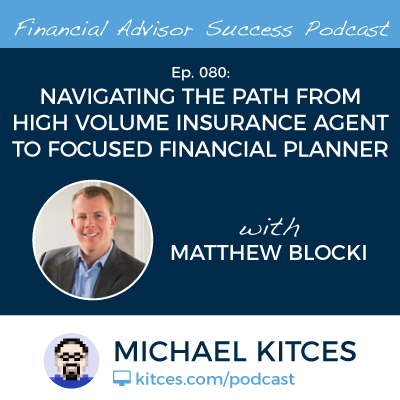Enjoy the current installment of "weekend reading for financial planners" – this week's edition kicks off with the news that the SEC is getting more aggressive in enforcing against advisors who violate the no-testimonials rule through social media platforms, as while previous SEC guidance has noted that there's nothing wrong with third-party social media websites that reference an advisor (from tweets about the firm, to having a Yelp page with reviews), the SEC did fine 3 advisors $10,000 each for hiring a third-party firm that solicited their clients to leave (positive) testimonials/reviews on the advisory firm's Yelp page. And also in the news this week is the decision of the SEC to move forward with a so-called "ETF Rule" proposal that would drastically streamline the time and cost it takes for asset managers to launch new ETFs.
From there, we have a number of insurance-related articles this week, from a look at the looming rise of no-load insurance policies (driven both by regulatory shifts away from commissions and towards fiduciary fees, and also the success of early no-load variable annuity products in the RIA channel), to a discussion of whether consumers (and advisors) are now overweighting the risk of future LTC insurance premium increases, and a discussion about whether advisors should start recommending various types of "concierge medicine" and "direct primary care" (DPC) health care solutions for clients in lieu of (or in addition to) traditional health insurance.
We also have several practice management articles, all focused around building teams and retaining team talent, including: an overview of Angie Herbers' "Diamond Teams" approach to developing advisor talent; tips to building deeper and stronger teams in your advisory firm; how to apply educational and instructional design principles to train and develop your team members more effectively; and a look at how to better retain female advisors in particular (as the number of female advisors has remained stubbornly 'stuck' and not rising for more than a decade, despite a significant rise in efforts to recruit women into the industry).
We wrap up with three interesting articles, all around the theme of entrepreneurship and starting your own advisory firm (or not): the first explores the challenge in larger advisory firms of finding next generation (G2) entrepreneurs to lead the business, which author and practice management consultant Philip Palaveev suggests may be less a lack of entrepreneurial talent and more a tendency of advisory firms to not take the steps and opportunities to develop the entrepreneurial talent they have; the second explores a research study that found, despite the stereotype of the 20-something uber-successful tech entrepreneur (e.g., a young Bill Gates, Steve Jobs, or Mark Zuckerberg), that the average age of an entrepreneur is actually 42, and the most successful entrepreneurs averaged age 45 when they founded their firms; and the last similarly looks at another research study finding that the odds of a startup business still being around in 5 years increases a whopping 500% when the founder is over the age of 35, and increases by 85% if the founder has at least 3 years of experience first... suggesting that in reality, the best path to starting a successful advisory firm with clients might never have been finding the "right" 20-something entrepreneurial advisor, but instead requiring all advisors to first get their 3 years of experience, complete their CFP certification, and consider waiting as long as 10-15 years into their career before actually going out to start their own advisory firm from scratch in order to increase the odds of long-term success.
Enjoy the "light" reading!

 Welcome, everyone! Welcome to the 80th episode of the Financial Advisor Success Podcast!
Welcome, everyone! Welcome to the 80th episode of the Financial Advisor Success Podcast! Welcome, everyone! Welcome to the 79th episode of the Financial Advisor Success Podcast!
Welcome, everyone! Welcome to the 79th episode of the Financial Advisor Success Podcast!
